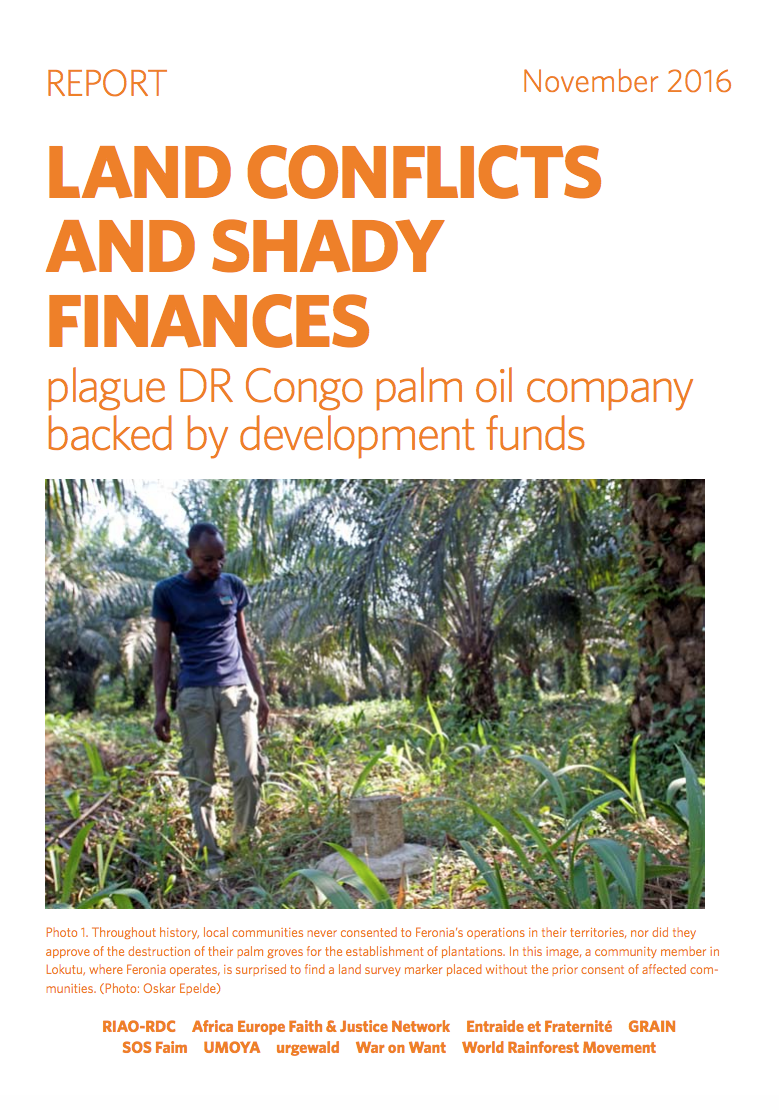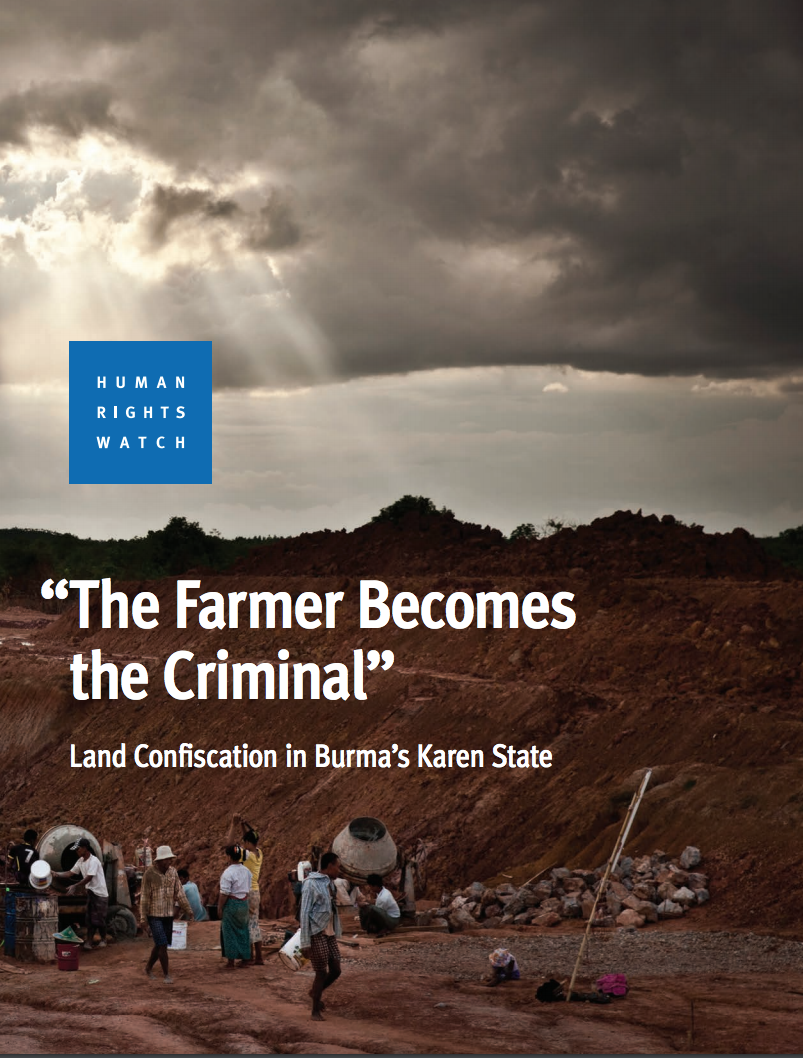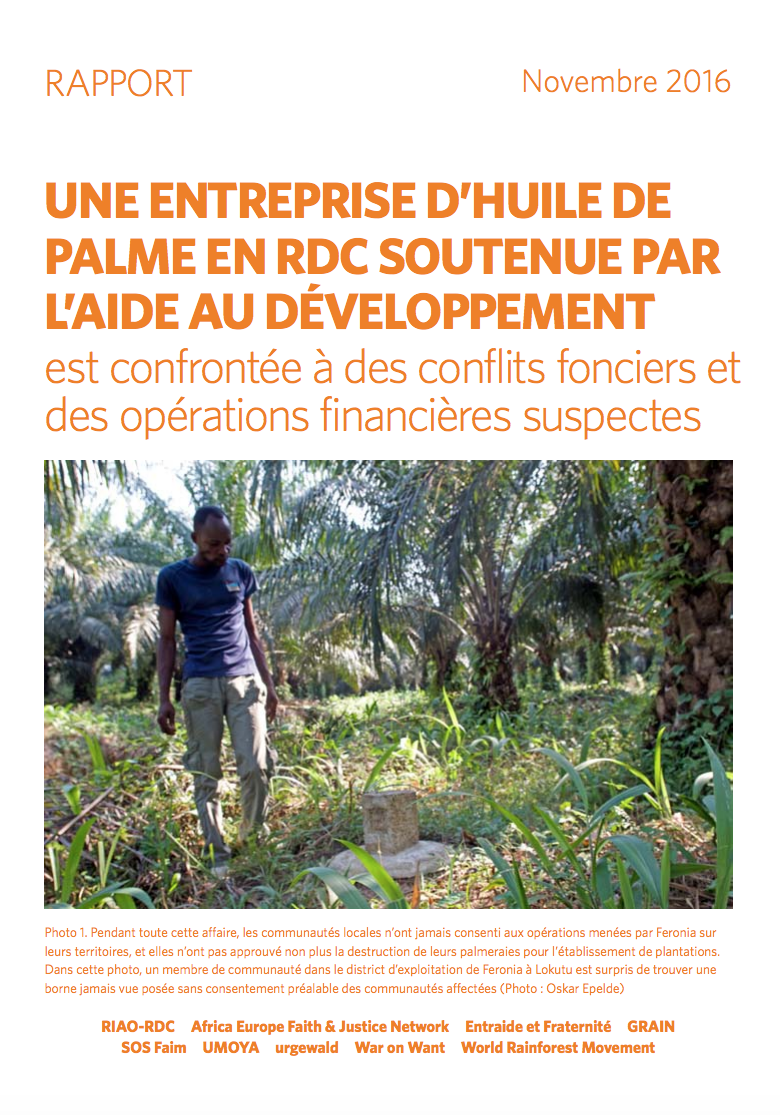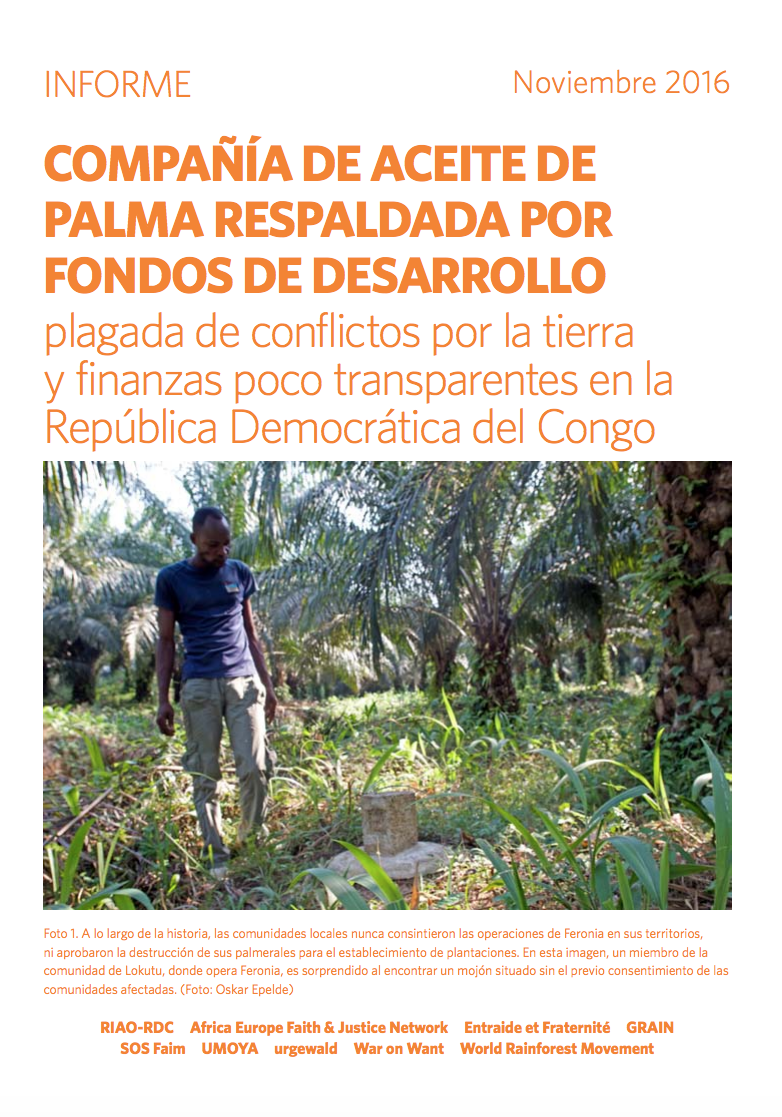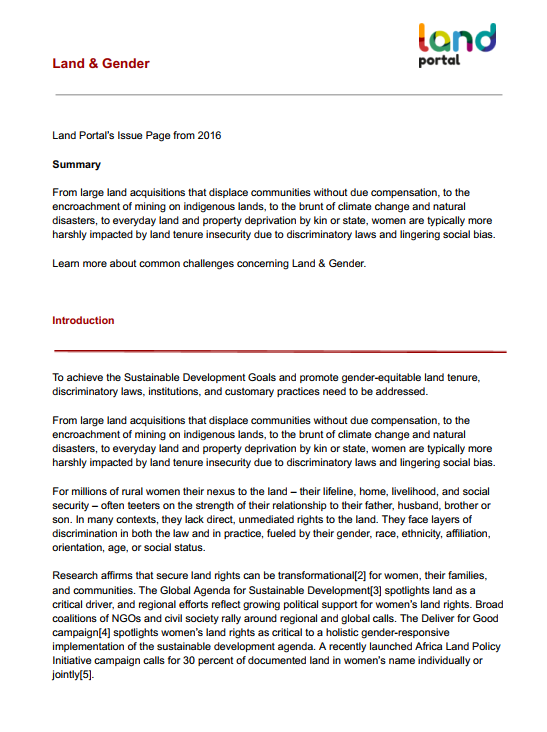Land conflicts and shady finances plague DR Congo palm oil company backed by development funds
European and US development funds are bankrolling palm oil company Feronia Inc despite land and labour conflicts at its plantations in the Democratic Republic of the Congo (DRC). New information now raises questions as to whether the Canadian-based company misused millions of taxpayer dollars destined for international aid by way of companies connected to a high-level DRC politician.
“The Farmer Becomes the Criminal”
In Burma, where 70 percent of people earn a living through agriculture, securing land is often equivalent to securing a livelihood. But instead of creating conditions for sustainable development, recent Burmese governments have enacted abusive laws, enforced poorly conceived policies, and encouraged corrupt land administration officials that have promoted the displacement of small-scale farmers and rural villagers.
Post-conflict land governance reform in the African Great Lakes region. Part III - Securing tenure of smallholder peasants
In post-conflict settings, securing tenure of local smallholders is considered of major importance to reduce and prevent local land disputes, to contribute to the recovery of rural livelihoods, and to improve agricultural production. Registration and other ways of formalizing land ownership are generally believed to significantly enhance local tenure security and rural development.
Une entreprise d'huile de palme en RDC soutenue par l'aide au développement est confrontée à des conflits fonciers et des opérations financières suspectes
Des fonds de développement européens et américains financent actuellement l’entreprise d’huile de palme Feronia Inc en dépit des conflits portant sur les terres et les conditions de travail sur ses plantations en République démocratique du Congo (RDC).
Compañía de aceite de palma respaldada por fondos de desarrollo plagada de conflictos por la tierra y finanzas poco transparentes en la República Democrática del Congo
Fondos de desarrollo europeos y estadounidenses están financiando la compañía de aceite de palma Feronia Inc. a pesar de los conflictos por la tierra y con los trabajadores en sus plantaciones de la República Democrática del Congo. Nueva información levanta dudas de si la compañía, con sede en Canadá, pudo haber desviado millones de los contribuyentes, destinados a la asistencia internacional mediante companías conectadas con un político de alto nivel en la RDC.
Course: Safeguarding land tenure rights in the context of agricultural investments
This course aims to provide guidance to government authorities engaged in investment promotion, approval, and monitoring activities at all stages of the agricultural land-based investment cycle. Based on the Voluntary Guidelines on the Responsible Governance of Tenure for Land, Fisheries and Forests, the course provides technical guidance on how to safeguard tenure rights, human rights, food security and the environment in the context of such investments.
La gouvernance responsable des regimes fonciers et le droit
Les Directives volontaires pour la gouvernance responsable des terres, des pêches et des forêts dans le contexte de la sécurité alimentaire nationale reconnaissent que des investissements responsables des secteurs public et privé sont essentiels pour améliorer la sécurité alimentaire et appellent à des investissements qui protègent les usagers et les propriétaires fonciers contre la dépossession des droits fonciers légitimes.
Governing Tenure Rights to Commons
This Technical Guide on Governing Tenure Rights to Commons aims to support states, community-based organizations and civil society organizations, the private sector and other relevant actors to take proactive measures to implement the standards and recommendations of thehttp://www.fao.org/publications/card/en/c/69cedff9-d20d-5aed-8de5-1524bc..."> Voluntary Guidelines on the Responsible Governance of Tenure of Land, Fisheries and Forests (Tenure Guidelines) for legally recognizing and protecting tenure rights to commons and community-based
Consentimiento libre, previo e informado: un derecho de los Pueblos Indígenas y una buena práctica para las comunidades locales
El manual es una herramienta dirigida a los responsables de proyectos y programas y contiene un procedimiento en seis pasos para facilitar el proceso de CLPI, al tiempo que muestra sus beneficios y provee el marco regulatorio que debe ser usado cuando se integren los derechos de los pueblos indígenas en las políticas y normas de las organizaciones.
VGGT: FIRST Webinar #2 – FIRST Policy Assistance Facility: Land Tenure issues in Myanmar
This webinar is organized jointly with the European Commission Directorate-General for International Cooperation and Development, in the framework of the FAO-EU Partnership Programme: Food and Nutrition Security Impact, Resilience, Sustainability and Transformation (FIRST). SPEAKERS: 1.Mr. Paul De Wit, Senior Land Tenure Consultant, FIRST Programme, FAO Representation in Myanmar 2. Ms.
Land & Gender
From large land acquisitions that displace communities without due compensation, to the encroachment of mining on indigenous lands, to the brunt of climate change and natural disasters, to everyday land and property deprivation by kin or state, women are typically more harshly impacted by land tenure insecurity due to discriminatory laws and lingering social bias


